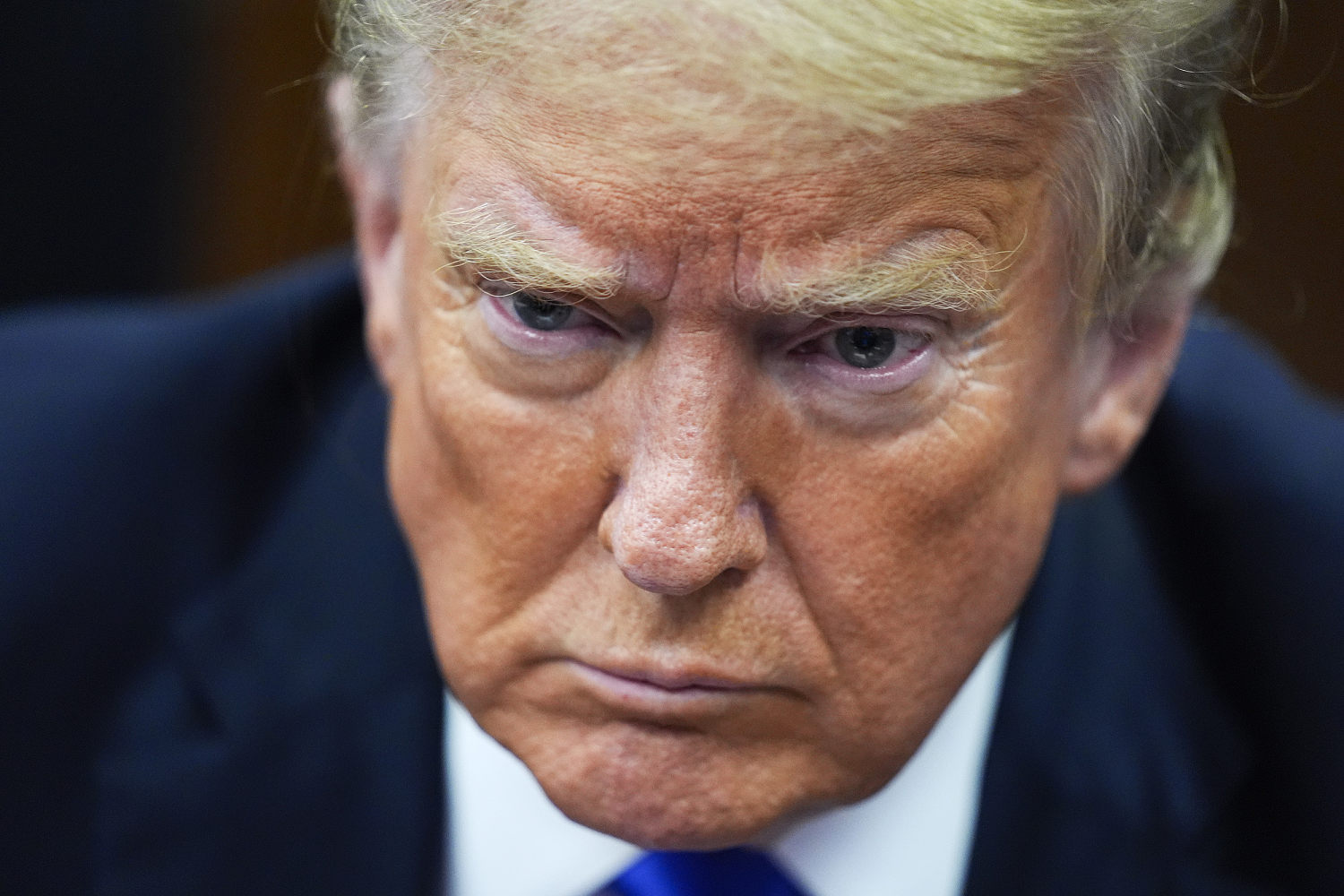
Since Vice President Kamala Harris entered the presidential race, some Democrats have summarized her matchup against former President Donald Trump as “the prosecutor” versus “the felon.” On the day that President Joe Biden passed the baton to Harris, Sen. Chris Murphy, D-Conn., said of her, “She is a prosecutor running against a felon.” At last week’s Democratic convention, speakers including New York Gov. Kathy Hochul, U.S. Rep. Jasmine Crockett, D-Texas, and Biden embraced that framing. In defending his record on public safety, Biden said Monday, “And crime will keep coming down when we put a prosecutor in the Oval Office instead of a convicted felon.”
Crime will keep coming down when we put a prosecutor in the Oval Office instead of a convicted felon.
President joe biden at the dnc
The prosecutor versus the felon is the kind of glib expression that’s perfect for an election-year bumper sticker. However, the suggestion that a “felon” is inherently and permanently untrustworthy makes for a heaping helping of hypocrisy from a party that has rightly identified overcriminalization, mass incarceration and voter suppression as systemic problems.
Yes, a Manhattan jury convicted Trump of 34 felony counts in May. Were it not for a Georgia prosecutor’s affair with a lawyer she hired, a Trump appointee in Florida entertaining his ridiculous motions and a Supreme Court that seems bent on rejecting the whole theory of America, he may have been convicted of up to 54 more.
That said, Trump showed his manifest unfitness for office long before any of those indictments. He exhibited it during his first campaign, during his term in office, while campaigning as an incumbent and no more so than by rejecting his status as a lame duck. And he is further demonstrating that unfitness during this, his third campaign for president.
But to label him a felon and use it to mean unfitness is to suggest that all “felons,” by their very nature, are bad and irredeemable. A political slogan can’t communicate every nuance. But at a minimum, it shouldn’t send a message inconsistent with the party’s stated values.
There has been a conscious effort in recent years — no doubt derided by detractors as “woke” — to refrain from using language that dehumanizes people and reduces them to their status or their circumstances. Say “enslaved people,” not “slaves.” Say “incarcerated people,” not “prisoners” or “inmates.” Again, there are critics of such constructions, and, without a doubt, those constructions make for clunkier sentences. But the point remains that people who have experienced a thing are far more than the thing they’ve experienced.
Consider the lawyer, poet and writer Reginald Dwayne Betts, as brilliant a person as you’ll find in this country. Before he wrote three acclaimed books of poetry and a memoir, and before his genius was recognized by the MacArthur Foundation, he spent years in prison for a violent carjacking he committed when he was 16. When discussing the title of his 2019 volume of poetry, Betts told NPR, “It’s called ‘Felon.’ But the thing is, ‘felon’ is just such an inadequate description of anybody.”
Those using the ‘prosecutor vs. felon’ dichotomy appear unaware of the inadequacy of that framing.
Those using the “prosecutor vs. felon” dichotomy appear unaware of the inadequacy of that framing. They may believe themselves to be making a commentary only about Trump. But they are betraying a belief that the word “felon” tells you everything you’ll ever need to know about a person. And, to repeat, they’re undercutting their arguments against less punitive sentences and their arguments against letting people who’ve served their time vote again. If all felons are bad, then why should we fight for their right to participate in elections?
Let’s set aside the fact that some people convicted of felonies aren’t guilty and, for argument’s sake, assume that everyone so labeled committed a significant crime.
Even then, the list of felons would include good people who did uncharacteristically awful things, sometimes accidental things. That list would also include people who were horrible human beings and turned their lives around. And, yes, it would include people like Trump, that is, people we know would commit the same crimes again if given the chance.
The argument against Trump, therefore, isn’t that he has a record. It’s that he’s unrepentant: a mendacious, self-seeking narcissist who has never evinced a shred of self-reflection or regret. It’s that he never has been, and likely never will be, deserving of anybody’s trust, let alone the country’s trust.
As a veteran journalist, I have known a significant number of elected officials who have gone to prison. Not only that, but I’ve watched a few of them re-emerge, return to the game of politics and even run for office again. One of them once requested a meeting with me where he asked how I squared my belief in second chances with my opposition to his candidacy.
He’s unrepentant: a mendacious, self-seeking narcissist who has never evinced a shred of self-reflection or regret.
Easily. My belief that people shouldn’t be forever punished doesn’t mean I think people who have been criminally punished and then run for office are automatically due political support. It doesn’t mean I think they’re good people. There are people I’d consider voting for even if they have gone to prison, and others I’d never consider even if they haven’t.
Under no circumstances would the Democrats throwing around the word “felon” have considered voting for him even if a jury hadn’t found him guilty. That’s because they’re not opposed to Trump because he’s a “felon.” They’re opposed to Trump because he’s Trump.

Leave a Reply